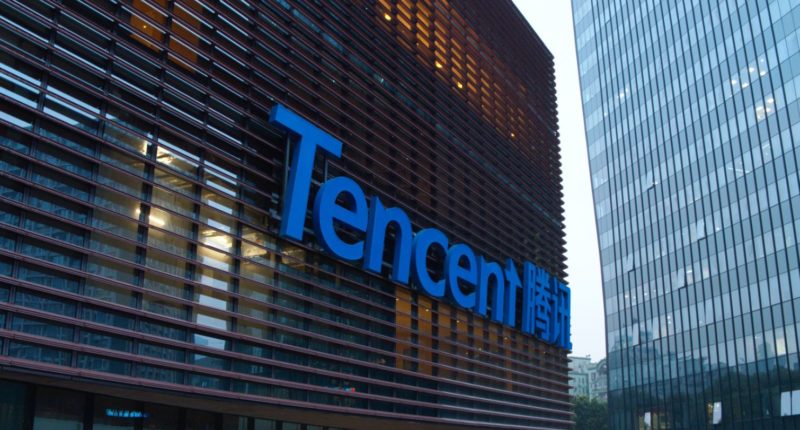China’s Tencent Holdings reported a drop in annual revenue for the first time ever. Coming with the backdrop of a regulatory crackdown, pandemic curbs, and an economic slowdown in the country, the technology and entertainment conglomerate posted an annual revenue of 554.55 billion yuan ($80.5 billion) for 2022, which is a fall of 1% from the same in 2021.
Despite this, however, the Chinese behemoth exceeded analyst expectations regarding its net income for the fourth and final quarter of the year – the period saw the company pocket 106.3 billion yuan ($15.4 billion) in net income. Analysts had estimated its annual revenue to drop to 555.15 billion yuan in 2022.
While its annual revenue dropped for 2022, its revenue for the fourth quarter increased to reach 144.95 billion yuan ($21 billion), barely exceeding the consensus estimate of about 144 billion yuan. This marks a growth of 12% from 94.9 billion yuan in the same period the previous year, further bolstered by a gain of 106.6 billion yuan from its disposal of stakes in Meituan. Its net margin also increased to 74% for the same period, from 66% last year.
“During 2022, we increased our business efficiency, sharpened our focus on core activities, and developed new services and revenue lines including Video Accounts and international games,” said Pony Ma Huateng, chairman and CEO of Tencent. “These changes position us to benefit from, and contribute to, a rebound in China’s economic growth which our users’ activity suggests is now underway.”
For the year ended December 31, 2022, the world’s largest video game company and the operator of the WeChat messaging platform reported a net profit of 188.2 billion yuan, which is a decrease of 16% compared to the previous year. Nonetheless, it exceeded analyst estimates of 113.7 billion yuan. This comes even as Tencent scaled down non-core businesses and cut over 4000 jobs across multiple departments. It also launched new revenue-generating services and is currently eyeing to enter the rapidly-intensifying AI race. These cost-cutting efforts will continue this year, Ma said.
ChatGPT has already become the talk of the town and has persuaded tech companies to roll out similar services and chatbots, and Tencent believes that AI could be a “growth multiplier” for the company. Like Microsoft, Google (whose conversational chatbot is called Bard), and Chinese search engine giant Baidu (who recently unveiled Ernie Bot), Tencent is working on its own chatbot service. Tencent President Martin Lau said it is based on a proprietary foundation model called Hunyuan and is currently in the very early development stage.
Coming back to Tencent’s performance, we find that its cloud and enterprise businesses segment reduced loss-making activities and optimized costs, “while focusing on healthier-margin self-developed PaaS solutions, such as video cloud and database.” Its key advertising division started to recover and return to year-on-year growth for the quarter, with revenue from online advertising rising 15% YoY to 24.7 billion yuan. Revenue from its domestic games business fell by 6% to 27.9 billion yuan, while the same from its international game counterpart increased by 5% to 13.9 billion yuan.
“We’re now gearing up for the global expansion of our games, and in the domestic market, we navigated through industry challenges during 2022 and are now well-positioned for igniting growth,” company president Martin Lau Chi-ping commented on the matter. Lau will step down from the board, but will continue to remain as company president and chairman of its investment committee.





